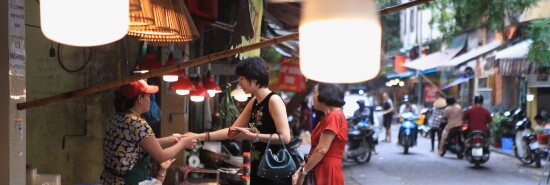
What free market principles did for Vietnam
Rainer Zitelmann
Video Embed
No country of comparable size in the whole world has gained as much economic freedom as Vietnam since 1995. It’s all thanks to market-oriented reforms.
Vietnam continues to gain economic freedom, as confirmed by the latest edition of the Heritage Foundation’s Index of Economic Freedom ranking. Vietnam’s economic freedom score is 61.8, making its economy the 72nd freest in the 2023 Index. Its score is 1.2 points better than last year. Vietnam ranks 14th out of 39 countries in the Asia–Pacific region, and its overall score is above the world and regional averages.
US PLUNGES TO ALL-TIME LOW ON HERITAGE FOUNDATION’S INDEX OF ECONOMIC FREEDOM
What is most important, however, is not just the most recent score, but the change in the ranking over time. Back in 1995, when the index was first compiled, Vietnam scored a meager 41.7 points. In the intervening years, Vietnam has gained 20 points.
By comparison, China had 52 points in 1995 and has gone on to lose almost four points since then. With a score of 48.3 points, China is now only 154th out of 176, a full 82 places behind Vietnam.
The Heritage Foundation writes about Vietnam: “Capitalizing on its gradual integration into the global trade and investment system, the economy is becoming more market-oriented. Reforms have included partial privatization of state-owned enterprises, liberalization of the trade regime, and increasing recognition of private property rights.”
The index ranks a total of 176 countries based on how economically free or unfree they are. The comprehensive rating is based on 12 categories of freedoms. The index divides countries into five groups, the best of which is “free” (and includes Singapore, Switzerland, Ireland, and Taiwan); the worst is “repressed” (with countries such as Venezuela, Cuba, and North Korea).
Vietnam secures strong ratings in the areas of “Fiscal Health” and “Government Spending” and moderate ratings for “Business Freedom” and “Monetary Freedom.” Vietnam rates poorly for “Government Integrity,” “Judicial Effectiveness,” “Property Rights,” and “Investment Freedom.”
If Vietnam continues on the path it embarked on in 1986 with the Doi Moi reforms, it has a good chance of becoming one of the world’s economically strongest countries. Before the economic reforms began, every bad harvest led to hunger, and Vietnam relied on support from the U.N.’s World Food Program and financial assistance from the Soviet Union and other Eastern Bloc countries. As late as 1993, 79.7% of the Vietnamese population was living in poverty. By 2006, the rate had fallen to 50.6%. In 2020, it was only 5%.
Vietnam is now one of the world’s most dynamic countries, with a vibrant economy that creates great opportunities for hardworking people and entrepreneurs. From a country that, before the market reforms began, was unable to produce enough rice to feed its own population, it has become one of the world’s largest rice exporters — and a major electronics exporter.
If it is to become one of the economically strongest countries in the world, Vietnam needs to make sure that its people do not forget why it has been so successful: increasing recognition of private property rights, more economic freedom, and greater integration into the global trading system. Many countries today are doing the exact opposite and restricting economic freedom. In order to continue growing, Vietnam should aspire to an even freer economy.
CLICK HERE TO READ MORE FROM THE WASHINGTON EXAMINER
Rainer Zitelmann is the author of In Defense of Capitalism.
